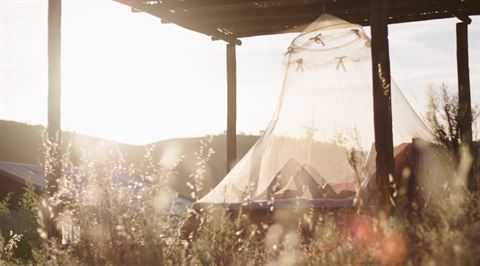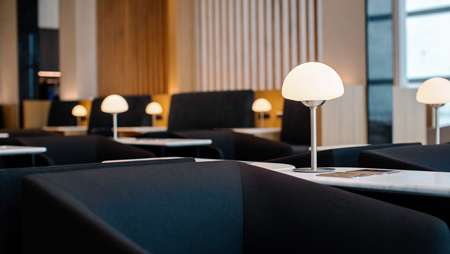ADVERTORIAL • July 2018
Top five tips for preventing malaria on your travels
With nasty side effects and sometimes fatal results, Malaria is not the holiday souvenir you want to bring home from a far-flung adventure. The good news is, with tips and tricks giving you significant protection against Malaria, the world’s most stunning destinations are still up for grabs

Dose of action
With around 4 million travellers heading to malaria endemic regions from the UK each year (ONS), the risk of contracting the disease – which is spread from person to person by plump-with-parasite mosquitos - is a very real possibility for Brits abroad. Now available to buy over the counter, suitable travellers (you must meet specified over the counter criteria) can arm themselves with Maloff Protect tablets. Starting 1-2 days before travel, take one tablet each day until the end of your trip. Holiday-makers looking to take Maloff Protect antimalarial tablets, which work by killing the parasite before it can reproduce in your bloodstream, should seek a full consultation before travel.

Net and protect
Did you know that 45 per cent of people who travel to malaria-risk regions don’t think they need antimalarial protection? If you’re hesistant to employ all the safety measures advised when travelling to at-risk areas, then it’s worth knowing that something as simple as a net can work wonders in preventing insects bites. Infused with insecticide, mosquito nets are lightweight, breathable and will help to stop the bugs from biting. Top tip: get a larger net to hang over your bed or tent at night, and make sure to tuck it under your mattress, as this is when the mosquitos are most likely to try their luck.
Spray it
Like nets, spray repellents can help to reduce the risk of contracting malaria abroad, and with malaria found in more than 90 countries worldwide, it is an essential purchase for those heading to wilder climes. Grab yourself a few bottles if it’s a long trip, and give your room a good spray before you settle in to root out any insects that have made their way into your accomodation before you. The recommended insect repellents include DEET (look for a spray that's 30 per cent DEET or above), Icaridin (20 per cent or above), and 3-ethlyaminopropionate - all of which should form a vapor barrier on your skin that’ll deter the mosquitoes from landing.

Roll up your sleeves
Or, in this case, make them long. Long sleeves and long trousers, especially when worn at night, will help reduce your chances of being bitten. Although the temperatures may be warm, the 1,600 malaria cases that were imported to the UK as recently as 2016 show that even the more uncomfortable measures are worth it when it comes to your safety. Wearing socks is another must, as mosquitos tend to fly at ankle-height. If you’re heading to somewhere hot, try and help the situation with lightweight clothing – that way, you’ll feel comfortable being covered up, and won’t sweat off any spray or gel repellents.
Doorway to danger
Carefully considering your accomodation in malaria-risk regions can act as another, underrated but essential form of protection against the disease. Firstly, avoid sleeping outside where the mosquitos are most likely to be flying; secondly, make sure all windows and doors are shut at night to prevent mosquitos making their way in; thirdly, screen windows and doors, and - if you can - your bed, with mosquito nets to help prevent insect bites. And make sure to consider the use of air-conditioning or fans, as mosquitos are famous for their dislike of cooler temperatures and air turbulence. Not limited to jungle treks and safari canaopies, parasite-carrying mosquitoes can bite and spread disease anywhere, including luxury and corporate hotels, so it’s always better to be safe than sorry.
This article has been tagged Advertorial
More from previous issues

José Avillez’s foodie guide to Porto
The Club discovers the best eateries around the city of Porto, under the expert guidance of the nation’s culinary superstar, José Avillez

Six rooftop bars for iconic London landmark views
Raise the bar: when you want to enjoy a cocktail and glorious London vistas, set your sights a little higher by picking a rooftop location

The Guru: the inside track on BA’s lounges
In the lead-up to BA's new lounge revamp, we delve into the design behind the elegant new lounge concept with our Brand Experience team guru

Nashville for every type of traveller
Whatever your tastes, head on down to Nashville – Music City has something for everyone, whether you’re a food fanatic or a parent looking to wow the kids